In support of our national treasure: Trove
Trove is an innovative and transformative digital platform, created by the National Library of Australia, that is a gateway into Australia’s vast cultural collections. With over 6 billion items and over 22 million visits per year, Trove is one of Australia’s top 15 global internet domains. It is literally putting our national, state and local collections on the map, bringing global attention to Australian history and culture.
The Professional Historians Australia (PHA), a dynamic body of over 500 working professionals across Australia, urges the Australian government to fully fund Trove in the Federal Budget in May 2023. This will ensure the National Library of Australia can continue to fulfil the social, cultural and legal responsibilities they hold to the Australian public and showcase Australia’s cultural collections to the world.
What has been achieved by the National Library of Australia in developing Trove into the form it takes today is incredible and invaluable. Trove has created the most significant collection of Australian stories and cultural heritage. As a historical tool, Trove is unique on a global scale, setting a high international standard amongst cultural institutions. It enables many cultural institutions, both large and small, to make their collections freely accessible to a global audience. Trove is an invaluable tool for professional and academic historians in Australia and globally.
Trove, which is free of charge for users and accessible to all, has democratised the past, providing a means for all to engage and connect with the social, historical, and cultural material that reflects who we are. Most notably, Trove provides access to thousands of digitised newspapers. The accessibility of Trove has far reaching implications that stretch beyond historians to our wider community.
Consultations run by the Australian Research Data Commons (ARDC) demonstrate that Trove is heavily utilised by the wider general community. These consultation sessions, in which the PHA has participated, highlight how Trove has led the world in making a wealth of data broadly available. The ARDC review concluded that not only was it essential to ensure Trove received enough funding to be maintained, but that with sustainable, recurrent and ongoing funding, Trove could become an internationally enviable research tool.
The threat to Trove funding is just one of many crises facing Australian national cultural institutions due to decades budget cuts and minimal investment in cultural infrastructure. Left unchecked, it may result in exacerbating a distinct disinterest and a dangerous lack of understanding about the importance of our cultural heritage.
The new National Cultural Policy Revive: Australian Cultural Policy for the Next Five Years presents a more optimistic future that recognises the importance of ‘cultural infrastructure’, promising ‘Strong Cultural Infrastructure: providing support across the spectrum of institutions which sustain our arts, culture and heritage’ as one of 5 pillars making up the strategic objectives.
The Policy also acknowledges:
There is an ongoing issue with respect to long-term neglect of core funding for the collecting institutions, for both capital and operations. Updated government policy on core funding and sustainability of the institutions does not form part of cultural policy but future funding for Australia’s collecting institutions is being assessed as part of the Budget process.[1]
Over the next few months, it is crucial that we continue to remind the federal government of the critical nature of services like Trove and institutions like the National Library of Australia, not only to professional historians, but also to the wider Australian public. We all deserve open and free access to our own cultural heritage and history. As Dr Mike Jones and Professor Deb Verhoeven wrote in The Conversation: ‘Public access should not be the first sacrificial offering every time there is a budget crisis’.[2]
The loss of this invaluable historical tool, Trove, will have immeasurable consequences, significantly impacting not only how we research and engage with our past, but also how we as Australian citizens and residents will come to understand our present communities, people, and nation.
[1] Revive: Australia’s Cultural Policy for the next five years, p. 75.
[2] https://theconversation.com/troves-funding-runs-out-in-july-2023-and-the-national-library-is-threatening-to-pull-the-plug-its-time-for-a-radical-overhaul-197025
